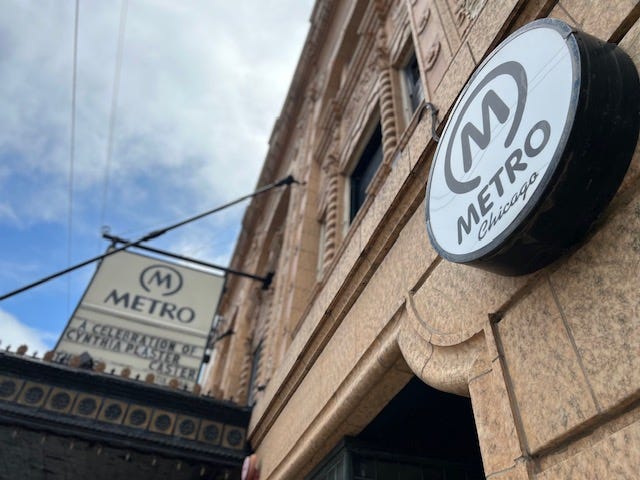
CHICAGO (WBBM NEWSRADIO) — Walk up the stairs of the storied Metro Chicago, at 3730 N. Clark St., and you can feel its history.
"I probably have gone up and down these stairs hundreds of thousands of times,” said Joe Shanahan, the Founder and Owner of Metro Chicago, Smart Bar, and Gman Tavern. “It never gets old."
Shanahan said Metro is his "mistress he's served" for four decades.
"I'm always excited to walk into that room, and just feel the spirit because such great things have happened here over the 40 years," he smiled.
As founder and promoter of the iconic independent music venue, Shanahan has been called the most influential man in Chicago’s music scene.
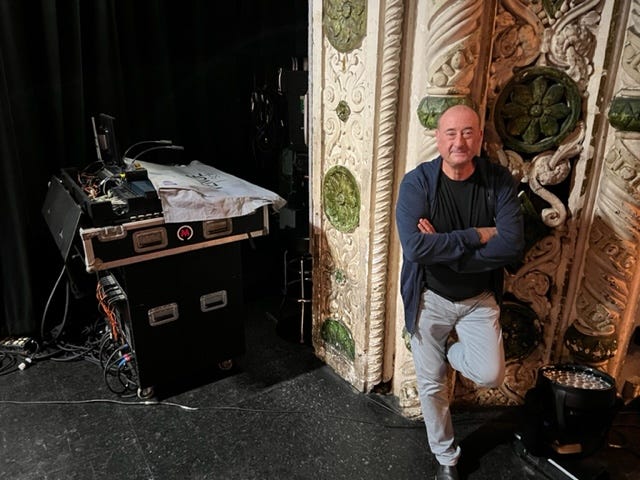
"I look at what we've done — it's a 'we,' not a 'me’ — it’s what we have done together,” he said. “Staff, present and past, has brought us here."
When Shanahan’s not at Metro, he's next door at Gman Tavern.
As he took a seat in his self proclaimed "Captain's Chair", Shanahan looked back at the journey that brought him here.
"I've been a rung on the ladder,” Shanahan said. “I think I've been a sturdy rung on the ladder. For us to be part of the mechanics of the actual work itself, there's a place for us."
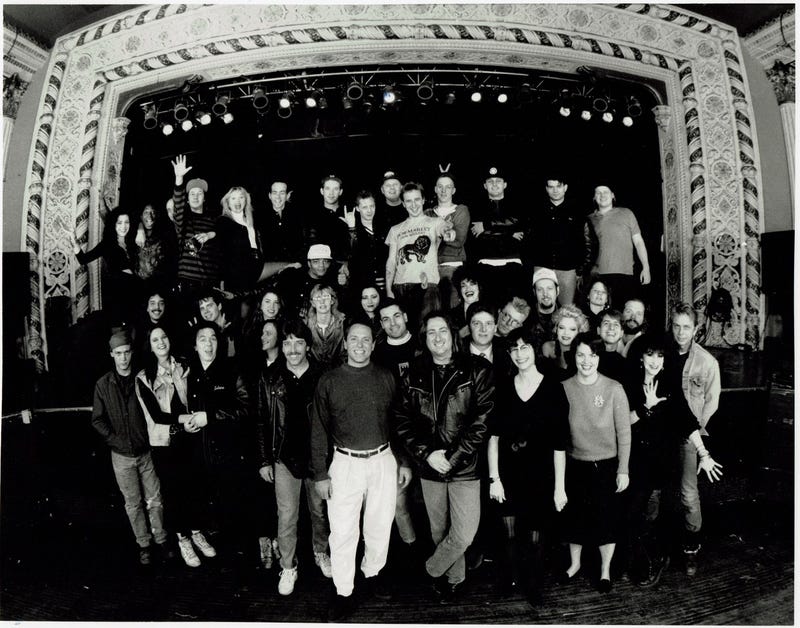
Metro Chicago's origin story
Shanahan grew up on the South Side of Chicago. He had a love of records and dance parties in his garage. Somehow those dance parties served as a premonition of what was to come.
"I guess that dance party in the garage grew into something a bit bigger," he saidlaughed.
Shanahan admitted he has an ear for finding new and upcoming artists, which he said started shortly after college when he used to frequent the club scene.
"Mud Club was based on a club here in Chicago,” he said. “We had one of the first punk disco's in America, and it was in Chicago, and I used to make a pilgrimage from SIU in Carbondale to listen to their punk rock DJs. Between that and The Warehouse where Frankie Knuckles was doing house music for the first generation of it. This was [the] late 70's.”
He said that New York “drew me to this flame, like CBGB’s,” and added that a place called Danceteria in New York City was where he heard a new band from Athens, Georgia.
"I happened to go to New York and see the opening of Danceteria,” Shanahan said. “it was R.E.M., and I just fell in love with that band."
Shanahan said he had heard of them through the college radio scene and passed along his card to their manager. The rest is history.
"I said, ‘If you ever get stuck in Chicago, give me a call, I'd love to put your show on. I'm opening a club, I'm doing a club, I own a club,’ which was kinda half true and half not true," he laughed.
He rented the space at the building that would become Metro, and the show was a success.
"Enough people showed up, and we paid the band, and we had money for beer and pizza after,” Shanahan said with a smile. “That was my baptism. This is okay, I can do this.”
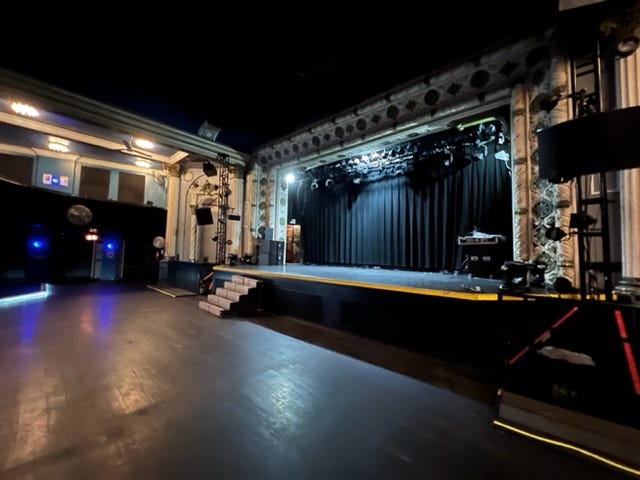
Smart Bar opened in 1982 as a dance club, a place for DJs, while Cabaret Metro became a place for live music. He knew he was onto something.
"We worked with Depeche Mode and New Order,” Shanahan said. “I just began to go through, what are my favorite bands. Let me just call these labels, call these agents."
Then Shanahan said he could feel a shift in the music scene.
"I always looked at the music and the theater scene in tandem,” he said. “As Chicago theater started to make waves nationally as well as internationally. I felt like it was the time for people to break away from some of the norms. There was this music that was under the radar that needed to get its own spotlight, and there were enough people to support that to create a business and create jobs for people."
Back then, he said, Wrigleyville was rough — not the bustling neighborhood and economic engine we know now.
"It was pretty rough,” Shanahan said. “There were gangs and drugs. It was rough up here. I think the Cubs were drawing about 5,000 – 6,000 people a game. This was long before any of the development."
Metro, though, became a place for what he called the "misfits,” a community hub to discover new music.
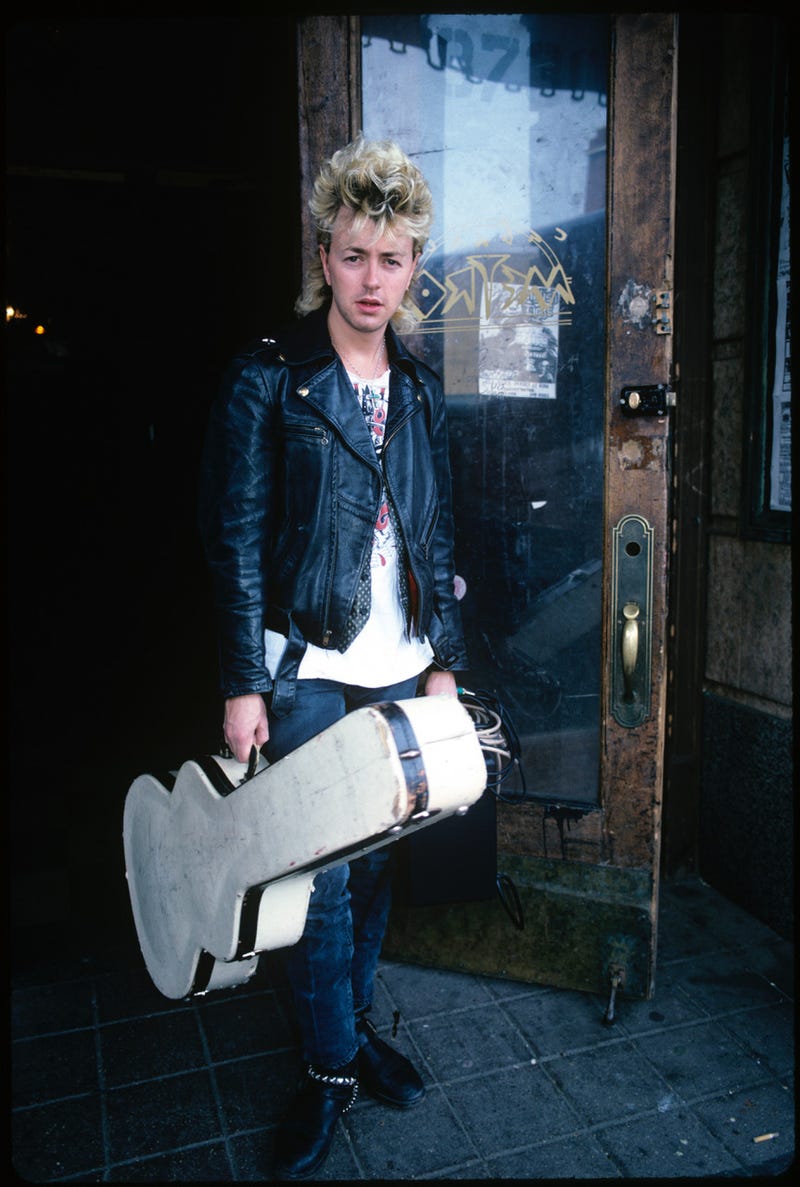
"I loved this neighborhood,” he said. “We could do punk rock shows, we could do The Ramones, we could do anything that was off to the left or off center. This neighborhood was that neighborhood [where] a lot of artists and a lot of bands lived. This was where the rents were cheap. This was Wicker Park before Wicker Park. This was Logan Square before Logan Square."
"That's where artists, bands, painters, poets and guitar players lived,” Shanahan said. “They lived where it was inexpensive."
From Bob Dylan to Eddie Vedder: The stars of Metro
Artists like the Smashing Pumpkins, Liz Phair and Material Issue began their careers at Metro.
"With a store like Wax Trax, we worked with them on a lot of the curation on the music scene in Chicago,” he said. “I found my tribe. I found the people who were thinking the same way I was."
Shanahan smiled as he talked about the pictures now donning the walls of Gman, memories and moments that have played out over the years.
Friends like the Clash's Joe Strummer, memorable shows like Bob Dylan, James Brown, The Killers, Oasis and more. The list goes on. Nirvana played the Metro in 1989. Prince performed an aftershow in 1993. Stevie Ray Vaughan played the venue in 1989.
A surprise show with Metallica in 2021 was another one that comes to his mind. It was the band's first time back since 1983.
"We had been looking for that opportunity to bring them back,” he said. “The band wanted to do something small before they started doing big shows again. They did San Francisco and they did Chicago. They made the T-shirt, made it look like the front of the club. They did a special poster."
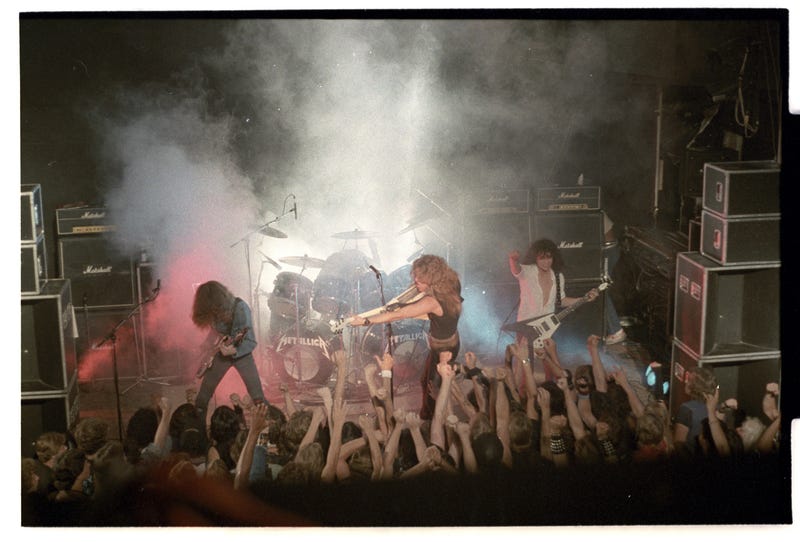
Tickets went for $20 at the door. All proceeds went to the Lakeview Pantry. He called it a civic moment made through music, a new chapter that he said has begun post-pandemic.
"That is clearly what my marching orders are now: to somehow find a way to continue to have music and [give] back,” Shanahan said. “Metallica is four guys that are amazing people and they are great human beings, so it was great to work with them.”
Metro humbled by the pandemic
Shanahan shook his head as he talked about the last two years. It was a dark time, he admitted.
"We were the first to shut down and the last to reopen," he shrugged. "Waking up in the morning and screaming into the phone, ‘You shut us down, what are you going to do to help us,’ fell on deaf ears.”
“The first rounds were tough,” Shanahan said. “I think [Congress] thought we'd just roll over and that was it. Promoters and club owners, we're tenacious. We've heard the word ‘No,’ and that doesn't mean we're going to accept it."
Shut down due to the pandemic, Shanahan suddenly became a voice in Washington. He was a key part of getting much needed money and grants for independent venues, a key to survival for him and promoters like him.
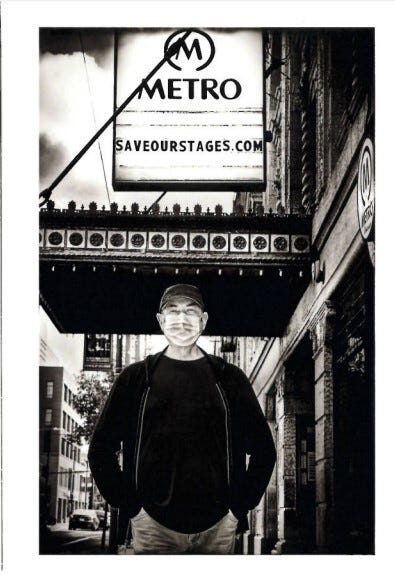
"Chicago had something in place already before the pandemic,” he said. “It was a business association. We used that model. We were able to secure the funds and hire people back. I told lawmakers that this was about jobs, getting people back to work. It didn't save all of us, but it saved most of us."
His latest project is something called the Postcard Project.
"It was something that was invented over dinner in our home,” Shanahan said. “My wife Jenny took the reins. She looked at creative ways to take care of our staff. While we were closed for 16 months, we came up with puzzles, merchandise, posters."
Then came the photos. Images from the last 40 years were added to the project, different moments in time captured by local photographers.
"We'll get all the photographers, and we'll get them to supply images of artists that have performed at Metro over the last 40 years and create this project,” he said. “We'll use the money for funding for salaries and money for the photographers, because they are out of work, too."
It continues to make a difference and help with employees' salaries.
Some would say Shanahan is responsible for launching the careers of countless musicians over the years. He reiterated he's only part of the process.
"I'm just a cog in the wheel, a sprocket on the chain, but it's really about fandom,” he said. “We love the music, we love the bands, we love working with them, and the DJ's. It's music first. That's the way it's always been."
Metro's next 40 years
As Metro marks its 40-year milestone, its roster is packed, and people are returning in droves to the live music scene.
"I've begun to think about music and culture,” Shanahan said. “It's like oxygen, and we've been kind of only half-breathing, only a quarter-breathing. What we're seeing now, we're taking all these deep breaths, and we're really happy to be back. It's a new normal, there are still issues with COVID. It does feel that people not only want it, but they are ready for it."
As he walked up the steps to the stage, he remembered the people who passed through — and passed on — but he laughed at some of the crazy things that have happened within these iconic walls.
"Oh if these walls could talk, oof," he laughed. "I won't be running for mayor anytime soon.”
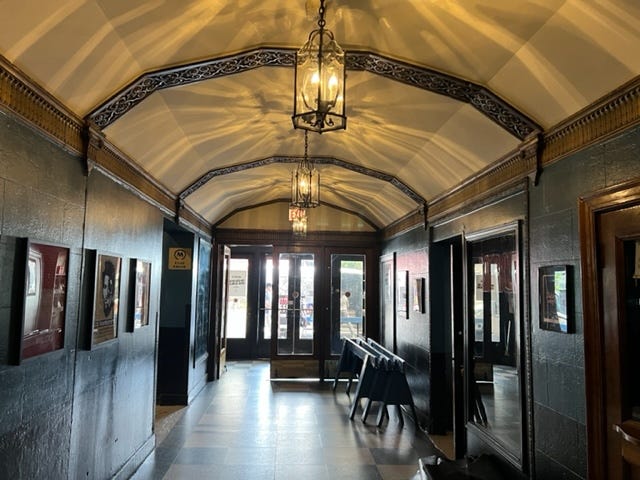
Shanahan had a bout with cancer in 2014, but he said he feels better than ever.
"I feel really strong,” he said. “I feel like our work is not done. With me looking at what it looks like moving forward, I'm very lucky. The staff lifts me, my family lifts me, and there's no reason why we would end anything anytime soon.”
He knows his path afforded him a pretty amazing life with amazing opportunities, but he said it's his continued passion to bring arts and culture to the community that keeps him going. It’s something he plans on doing for another 40 years.
"I like bringing community together, and the more I can do that, the more satisfied I am as a person,” Shanahan said. “That's part of my DNA. That's what gets me out of bed. It doesn't feel like a job, though it's hard work, it's something to do with the joy I get from it. The joy I get is the joy I give. Our work is not done yet.”
The Metro and Smartbar 40th Anniversary Celebration will kick off on July 22, and July 23rd.
Tickets and lineups are available on Metro’s website.
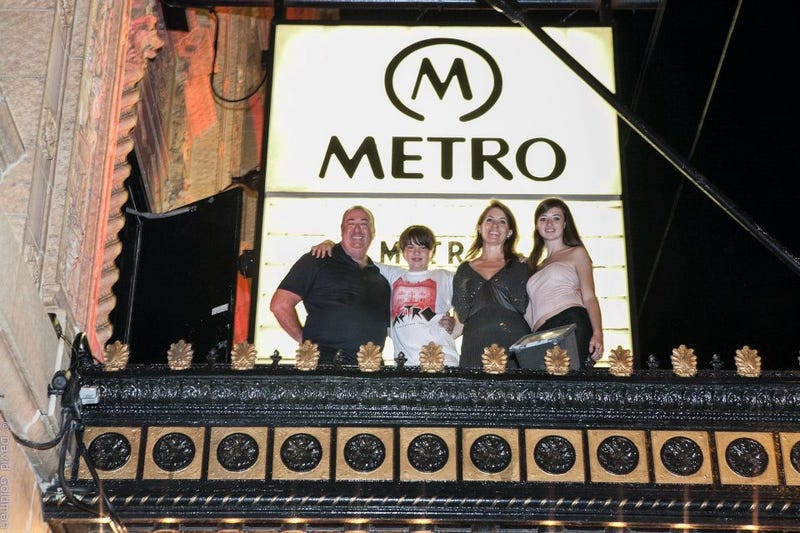
Listen to WBBM Newsradio now on Audacy!
Sign up and follow WBBM Newsradio
Facebook | Twitter | Instagram

